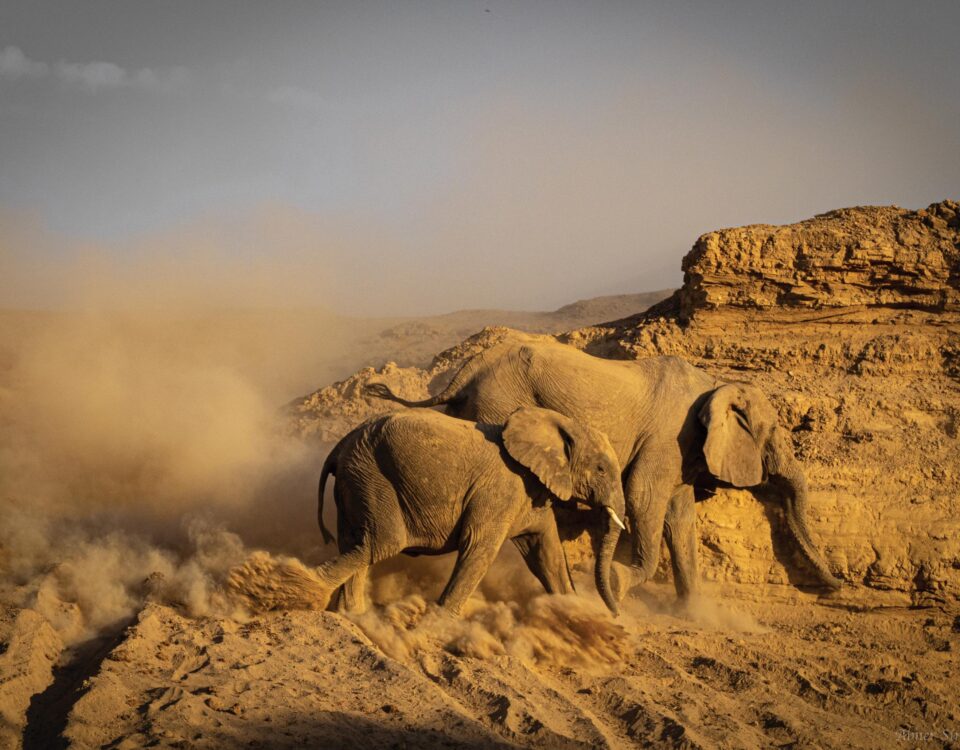Game Rangers Association of Africa: The voice of experience
July 6, 2012IRDNC Caprivi: Community-based crocodile management
July 6, 2012By Bonnie Schumann
Joas Njembo crouches down and scans the ground with an intent look on his face. His frown breaks into a smile as he recognises the predator’s track he’s found. Investigating the site of a ‘livestock kill’ and advising the ‘farmer’ on livestock management solutions are what he was tasked to do during this afternoon’s practical session with 41 colleagues from the Ministry of Agriculture, Water and Forestry.
Joas and his group are among the many participants who have attended the training courses on Integrated Livestock and Wildlife Management offered by the Cheetah Conservation Fund. The objective of these courses is not to rehash the well-known problems associated with human-wildlife conflict but rather to examine solutions to this conflict, based on the knowledge shared during the week, with specific emphasis on the beleaguered predators. Livestock production systems, the selection of livestock with the emphasis on functionality, herd health, strategic planning and predator-conflict management are only some of the topics covered during the course.
CCF staff member Bonnie Schumann is spearheading the courses. Having been intensively involved in farmer extension work for almost 10 years on behalf of the CCF, Bonnie understands the pressing need for a structured training programme targeting farmers from all sectors. Remarks Executive Director of the CCF, Dr Laurie Marker, “Bonnie combines her practical knowledge on cheetahs with livestock and wildlife management with such passion that farmers are excited to learn and implement the CCF’s proven farming practices.”
The training courses were initially launched through the communal conservancies, with 140 Namibians from 24 communal conservancies across the country and their line ministry and NGO representatives visiting the CCF research centre and undergoing integrated livestock and wildlife management training during 2005.
This year, work will continue with the communal-conservancy training programme, while training will also be given to affirmative and emerging farmers, as well as to farm workers.
With so much of Namibia’s wildlife occurring outside protected areas, the future of conservation in Namibia will depend largely on how well people living with wildlife come to grips with the associated issues, be it hartebeest competing for grazing with cattle, an elephant raiding someone’s crops or the unwelcome attention of a cheetah on a herder’s goats.
This article appeared in the 2006/7 edition of Conservation and the Environment in Namibia.

